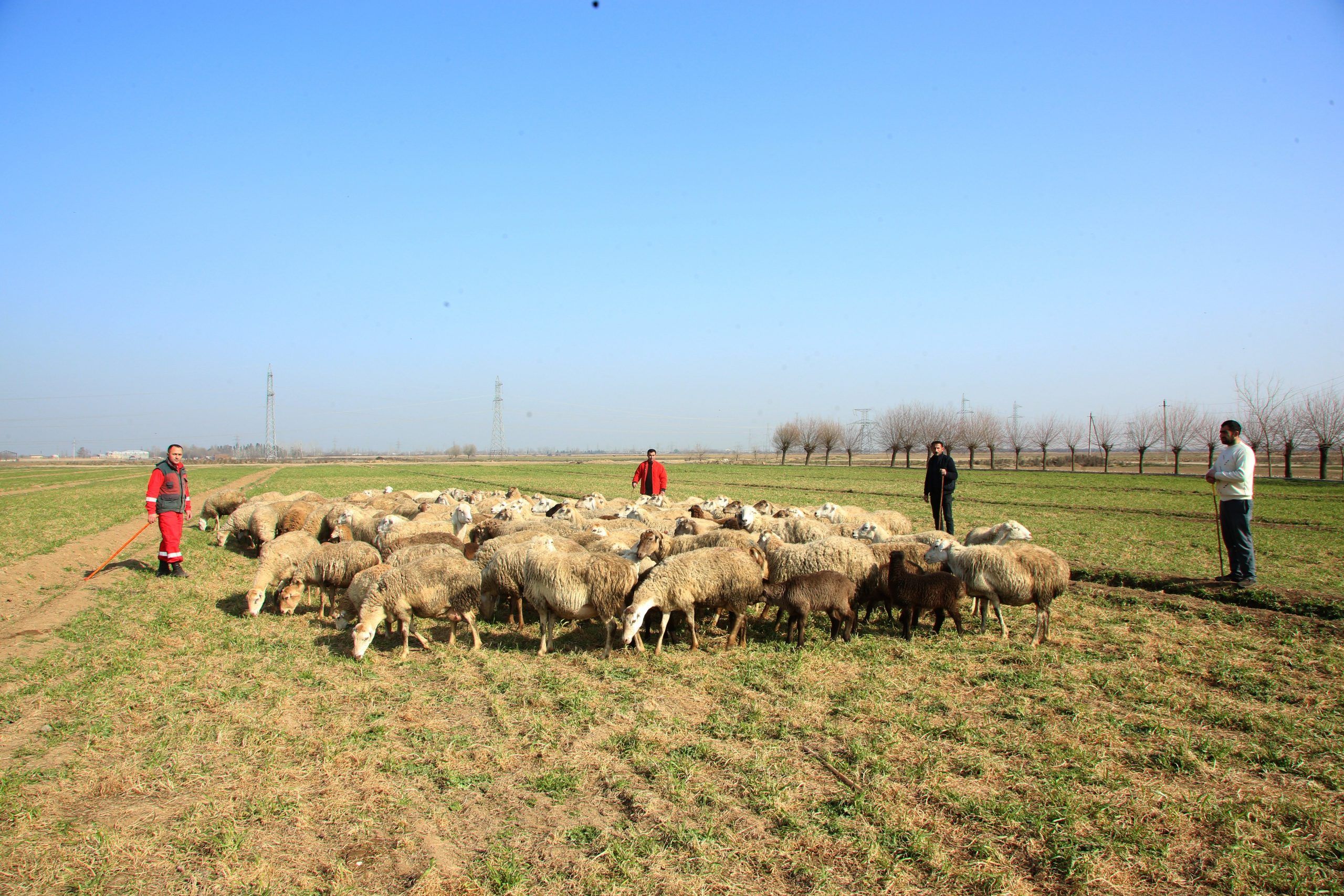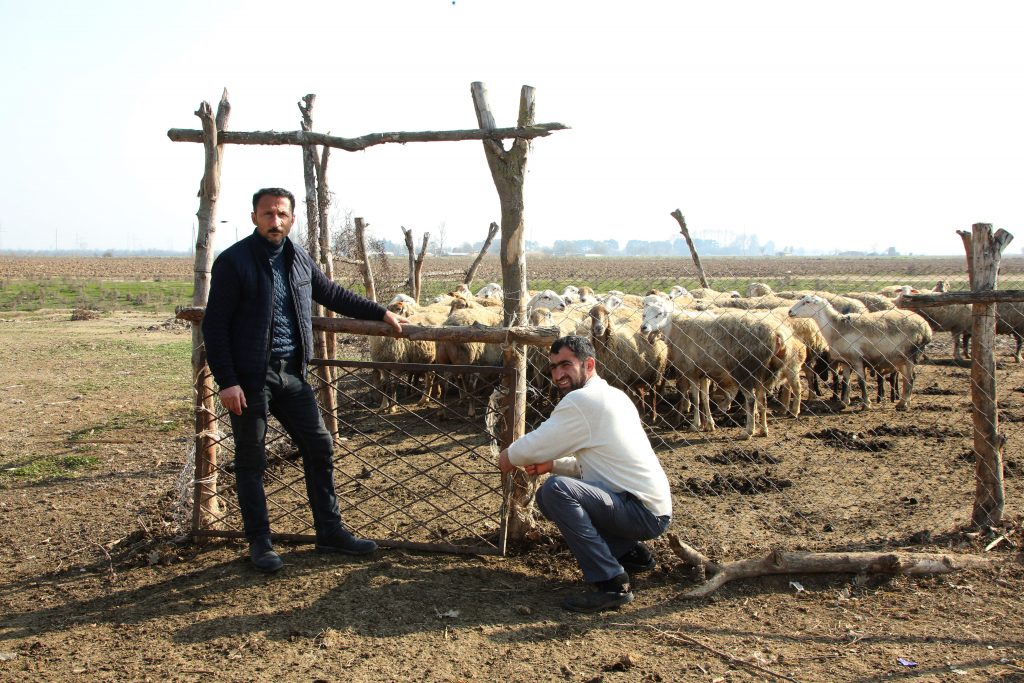
“Sheep Farming” Cooperative
Orkhan, with his family, lives in Hajibadalli village, Aghjabadi, Azerbaijan. He is an economist by education. Aghjabedi is a rural and heavily agricultural district. Crop and livestock farming are main types of activities that people are engaged in here. After completing his compulsory army services Orkhan left for Russia for doing business. After some years of trading in Moscow, he decided to return to his village and settle here. Since then he has started cultivating cotton and some other crops in rotation on his family’s small plot of land.
Orkhan was a client of Turan Bank from where he used to take micro loans for covering his farming expenses. One day he was informed in the bank about the AMFA/EU Project – that they were looking for micro-entrepreneurs who had potential to grow their businesses. Orkhan recalls that many people including him and some of his villagers applied to AMFA/EU Project. Few weeks later he received a call from AMFA that he was one of those who were selected to attend financial literacy and business planning trainings. Orkhan mentions that those trainings helped him to prepare his business plan and apply for a grant. Fortunately, at the end of the selection process he and three of his co-villagers were among those who were selected to receive grants. Following the business planning training, AMFA also organized Cooperative Development training. At that training he got acquainted with the business ideas of his co-villagers more closely and discovered that they all had the same business idea of starting a small scale sheep husbandry. At the Cooperative Development training they learned how to establish a cooperative, how to build trust among members, how to develop bylaws of cooperation, how to define common cost items, how to organize procurement, and sales, material and labor resources to increase efficiency and so on. In fact, the design of the training required the participants to work in groups as per the chosen activities to simulate cooperative development process and learn simultaneously by doing. During the training Orkhan and his three co-villagers decided to keep sheep together.
Basically they started generating a business plan for their future cooperative during the training. Once they received grants, they established a cooperative to manage their sheep farming in collaboration. They together bought 40 sheep for husbandry. Since then they all have been collaborating as a group to maintain sheep farming activities such as cleaning, feeding and caring. They are also in the process of formal registration of their cooperative.
